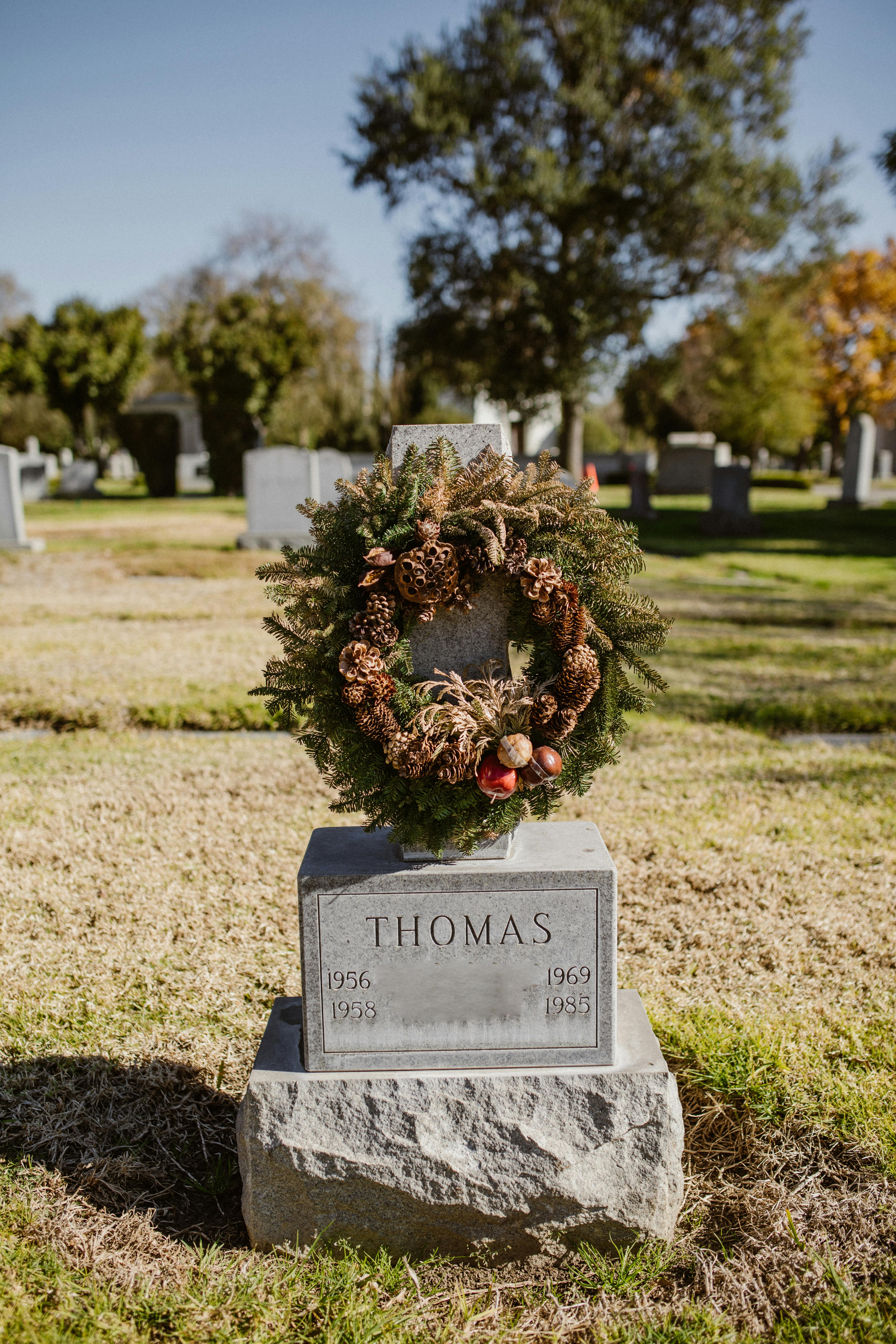If you’ve recently lost a loved one and are considering how best to commemorate them, a headstone is a lasting tribute. When arranging a funeral, a headstone may be an important part of the decision-making process. Choosing the right words for this memorial can be a daunting task, especially at such an emotional time. This guide offers practical advice on writing a fitting inscription, what to include, and how to make the decision with care and thoughtfulness.

Take Your Time
Selecting the inscription for a headstone isn’t something you need to rush while planning a funeral. Headstones are typically not installed until several months after the funeral, giving you plenty of time to reflect and discuss the wording with family and friends. It’s essential that the words feel right and truly represent your loved one, so don’t feel pressured to decide immediately.
Keep It Simple
When writing a headstone inscription, less is often more. Short, meaningful phrases can have a greater impact and are more fitting given the limited space available. The key is to focus on the essence of your loved one—capturing their personality, life, or the sentiment you wish to convey.
Make It Timeless
A headstone inscription will be there for generations to come, so it’s important that the words chosen are timeless. Think about what will resonate with future visits, and choose wording that honours your loved one in a way that feels lasting and meaningful. Taking the time to discuss options with family members whilst planning a funeral can help you settle on something that reflects your loved one’s memory in a way that everyone feels comfortable with.
Consider the Tone of Voice
One approach to finding the right words is to consider the tone of voice your loved one would use, or how you’d want them to be remembered. Some headstone inscriptions may be written as if your loved one is speaking, while others may be written from the perspective of family or friends. Whether in first person or third person, the tone should feel authentic and in keeping with how your loved one lived their life.
Types of Headstone Inscriptions
There are many ways to approach a headstone inscription, ranging from traditional to more personalised choices. Here are a few ideas:
• Simple or Classic Epitaphs: “Rest in Peace” or “In Loving Memory.”
• Life Roles: “Beloved wife, mother, daughter.”
• Biblical Quotes: “The righteous shall go into life eternal” (Matthew 25:46).
• Poetry Excerpts: A few lines from a favourite poem.
• Celebrity Epitaphs: “The Best is Yet to Come” (Frank Sinatra).
• Famous Quotes: “Where there is love there is life” (Mahatma Gandhi).
• Personal Messages: A heartfelt quote or message from your loved one.
• Song Lyrics: Lines from a song that held meaning to them.
Religious and Cemetery Guidelines
For families with religious beliefs, it’s a good idea to seek guidance from your local diocese. Some dioceses may have specific recommendations for inscriptions to ensure they align with religious teachings. For example:
- The Diocese of Birmingham allows additional words if they are “consistent with Christian scripture, teaching, and doctrine” and do not compare the deceased with others.
- The Diocese of Norwich encourages inscriptions that are “simple, dignified, and reverent,” avoiding passing sentiments and instead focusing on brief biblical or hymnal references.
If your family is not religious, it’s still important to consult with the cemetery to ensure the inscription meets their regulations. Always check before finalising the wording.
Principal Details to Include
A headstone inscription should typically include the following details:
- Opening Phrase: “Dearly loved” or “In Loving Memory of.”
- Full Name: The full name or nickname of your loved one.
- Dates of Birth and Death.
- Relationship: Some families may include a reference to their relationship with the deceased, such as “beloved husband and father.”
- Closing Phrase: “Always remembered” or similar sentiments.
Ask for Help
If you’re struggling to find the right words, don’t hesitate to ask for guidance during the funeral planning process. Funeral directors can offer support on choosing inscriptions, and they’ll also be able to inform you of any restrictions depending on the burial site. They may have helpful suggestions based on their experience, particularly if you’re limited to a few lines. To find a funeral director near you, you can plan a funeral through The Farewell Guide and use our free search and compare tool for hundreds of local funeral directors.
At such an emotional time, it’s understandable to seek advice from others who can guide you through the process of creating a tribute that honours your loved one in the best way possible. Thoughtful, carefully chosen words will create a meaningful and lasting memorial.
For further assistance on headstone inscriptions, designs, or pricing, contact your local funeral directors who can provide the necessary guidance. You can find funeral directors near you through The Farewell Guide’s free search and compare tool.